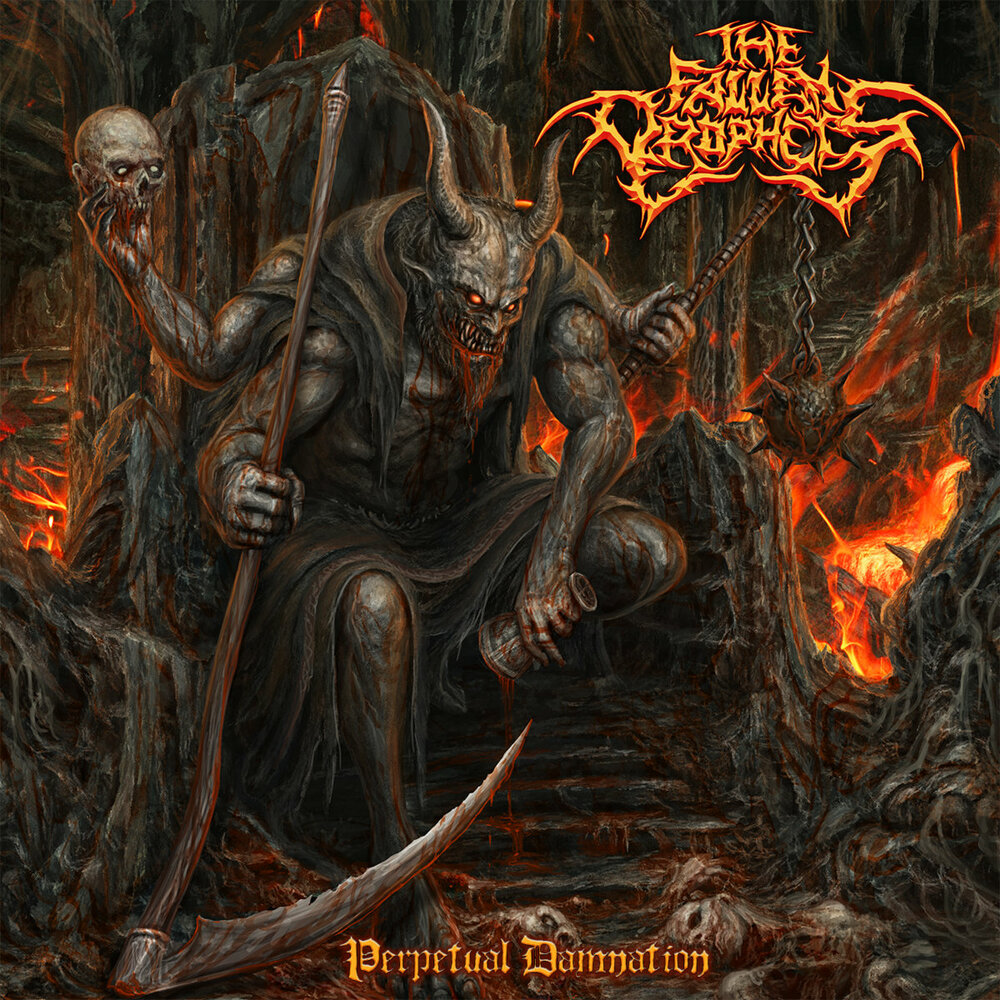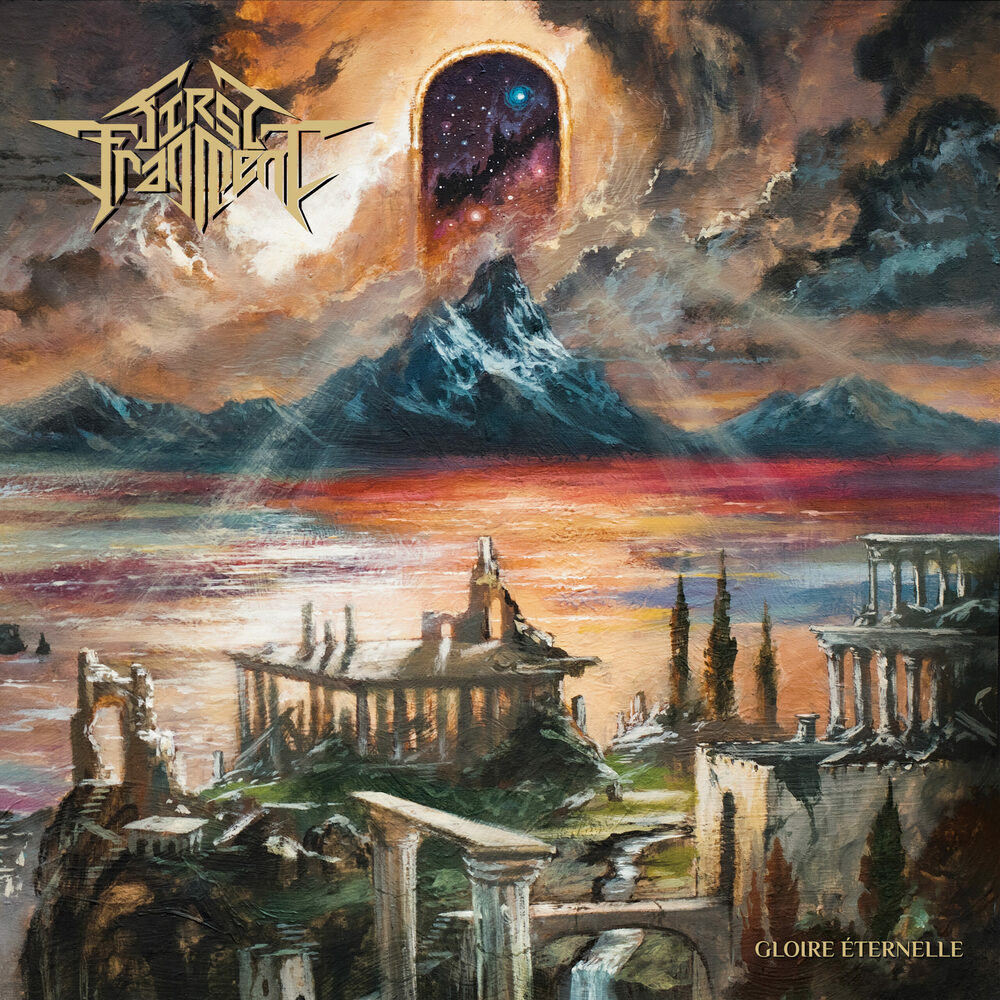 |
Country: USA
Style: Progressive Death Metal
Rating: 6/10
Release Date: 4 Oct 2024
Sites: Bandcamp | Facebook | Instagram | Metal Archives | YouTube
Here's an album that's made a lot of top ten lists for 2024, unsurprisingly given how much buzz has surrounded Blood Incantation lately. I reviewed their previous album, 2019's Hidden History of the Human Race, in January 2020 because it had similarly made so many end of year lists. The general consensus of the critics is the same for each: they're both masterpieces that move death metal in new directions. What's odd is that I found myself happy to agree with them last time but not this. There are the roots for a masterpiece here, but it just doesn't hold together for me.
There are two tracks, The Stargate and The Message, presumably broken up over the two sides of the vinyl release, and each of them is broken up into three parts named Tablets. That's hardly an unusual approach, but I can't figure out why any of them are separated the way they are. Tablet I of The Stargate, for instance, features three utterly distinct parts that aren't separated at all yet the ambience that ends Tablet I flows right into Tablet II as if there shouldn't be a gap. I can't see what Blood Incantation are trying to do.
By utterly distinct, by the way, I mean utterly distinct. Tablet I starts out with bubbly synths but a jagged guitar quickly joins in as if this is a Voivod album. Thirty seconds in, it's clearly technical or progressive death metal and that settles down within the next minute and we're off and running at pace. It's all good stuff and it's building. However, it all falls away at the two minute mark, so it can veer into something completely different.
Suddenly it's funk. Or reggae. Or soft rock. Or jazzy space rock. Maybe it's all those things at once, rather like a lively krautrock piece with a touch of Journey, especially once a keyboard solo shifts the feel firmly into space rock. Eventually, it evolves into Pink Floyd, a Dave Gilmour clone rocking out in a guitar solo. This is a wild and very interesting three and half minutes. Again, it's all good stuff, entirely instrumental, but if I have no idea why it's there at this point in this song.
What's more, it doesn't end with Tablet I. It just erupts back into prog death at the five and a half minute mark, rather abruptly too, as if someone realised that the radio station had changed from the metal station to the krautrock station and tweaked the dial back again. This closing section is, you guessed it, all good stuff. Everything here is well played and clearly placed very deliberately. I merely have no idea what it's supposed to achieve. I get the feeling that it's supposed to take me to a particular place but it doesn't. I'm stranded in the airport terminal wondering which of these planes to catch.
If the end of the part prompts the decision, then it's that krautrock plane to Berlin, as Tablet II is almost entirely told in that instrumental vein, merely with added samples for flavour. In fact, it's so krautrock that there's a guest musician here and it's Thorsten Quaeschning, the current leader of electronic pioneers Tangerine Dream. That isn't particularly shocking, because it sounds like a track of theirs all the way until it turns into pastoral folk rock three minutes in and eventually gets to a heavy prog metal section, sans the usual death components, at the end. That's a genre even a musical chameleon like Tangerine Dream hasn't tried out yet.
I could keep going at this level of detail throughout all three tablets of both songs, but there's no point. The same wild shifts happen and, while every section sounds great on its own, none of it has any reason I can figure out. What's that ethnic instrumentation on Tablet III, in front of the tribal drums? I have no idea but it sounds good and makes no sense. Why does Tablet II of The Message veer into jazz out of nowhere? Why does Tablet III open up in a clear thrash metal section, a nicely powerful one at that until the death growls show up and minimise it? Why does that shift into the same pastoral flute and soothing folk prog as the middle of Tablet II of The Stargate? I don't know.
It feels like I should like this. I tend to appreciate bands subverting genres by merging them in odd ways. I tend to love extreme metal bands dipping into unusual rock territory, especially with ethnic instruments to mix it up even more. I tend to like being bludgeoned here but soothed there. That's joyous to me. But it has to make sense. There has to be a reason for it to happen, lyrical or musical or whatever. Set a scene and paint it with music so I can see what it is. It seems like this is trying to do that but it doesn't know how.
And that's why, as beautifully played as this is and as fascinating as its musical shifts are, it simply doesn't work for me as an album. Hidden History of the Human Race was an easy 9/10 for me, even though I don't dish those ratings out like candy. This has to be a 6/10 because it makes no sense to me at all and I've listened through enough times for a sudden realisation to feel long overdue.












